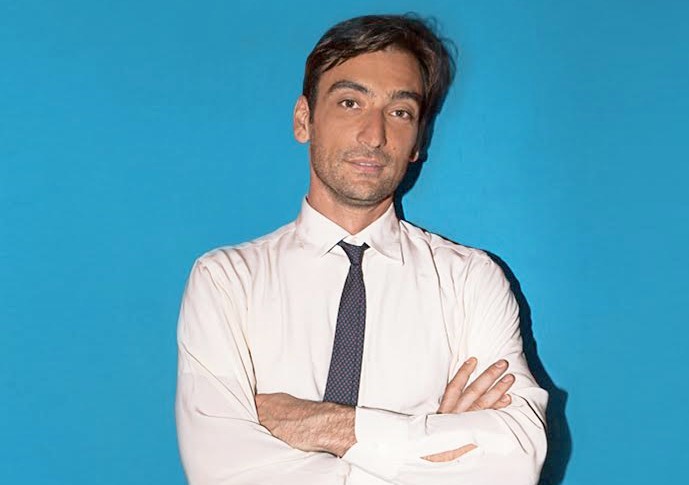By Jules Lavallee
Gabriele Donati is the CEO and Co-Founder of TimeRepublik, the world’s largest time bank. As a working musician in New York City with inconsistent paying gigs, he noticed how artistic communities would pitch in and help each other out when income ran low. Gabriele reconnected with Karim Varini, his longtime friend, over the concept of time banking. Soon after that, they created TimeRepublik, an online community, and global phenomenon, where people freely exchange their talents and skills using time instead of money as currency.
You have been active on the NYC Jazz scene and have played with names such as Frank Morgan, Javon Jackson, Richie Beirach among others. Share your background.
I am originally from Switzerland and started playing the electric bass in an R&B band in high school. Soon after that, I fell in love with jazz music, so I quickly switched to upright bass. My dream was to move to NYC and that’s what I did in the winter of 1995. I believe that that’s the most important and challenging decision I made in my life. Not only musically, but on every level. To be from a small village in Switzerland and be catapulted into the reality of New York during the most important formative years of my life changed me quickly and deeply. It has been a great journey!
Share a monumental moment in your career.
Without hesitation, I would say the time I found myself sharing the stage with two of the most important musicians that shaped the history of jazz: Richard Wyands on piano (Ella Fitzgerald, Etta Jones, Charles Mingus) and Leroy Williams on drums (Sonny Rollins, Barry Harris, Slide Hampton). I used to go to listen to Richard Wyands’ Trio every Thursday at a club downtown. One night I went in and the bass player, the legendary Lisle Atkinson (Nina Simone, Betty Carter) had fallen from the stage and hurt his head. Fortunately, it was nothing serious, but he was taken to the hospital for a check-up anyway, he was almost 80. After a long break, the band wanted to continue to play and asked if there was a bass player in the house. My friend basically pushed me on stage and there I was, numb, in the most surreal moment of my life. I recall that moment like I remember a dream and, if it wasn’t for some pictures taken that evening, I wouldn’t believe it happened to me. Sadly, the year after, both Richard (91 years old) and Lisle (79 y.o.) passed, so I will cherish that moment for the rest of my days. The day I touched godlike figures with my very hands.
How did your passion for Jazz fuel your desire to launch TimeRepublik?
Time has always been consciously at the center of my life, and through music (and especially as a bass player whose role is the pacesetter) I was able to look deep into the meaning of time. Year after year, I became more and more aware of the importance of every beat, of every fraction of the second. In jazz, the beat is like the brick for an architect. You need to lay each down one at a time, with as much precision as you can manage, in order to build something as amazing as a cathedral. The same applies to life: where the beats or bricks are the seconds you live. Second after second, what you are building is your future, and I don’t mean this figuratively—I am being quite literal. TimeRepublik is exactly that. With TimeRepublik we are trying to underline the importance of time. We are trying to create awareness for the most important resource we have. That strange thing called time which is scarce but yet abundant.
Tell us about TimeRepublik.
TimeRepublik is a community of people that share all sorts of services in exchange of time instead of money. 1 hour has the same value for anyone involved, no matter what your talent might be. Yes, 1hour=1hour. No matter what you do, no matter who you are. I know, most people cringe when they hear that, but I truly believe in this formula and it has been the one thing that has been most commonly misunderstood. By saying that one hour has the same value we are not saying that everyone’s skills should be valued the same. We are actually not so concerned with measuring the value of people’s skills, but we are much more interested in creating relationships between people because we know that only through a relationship you can create trust and once you manage to create trust anything becomes possible!
Why does Timebanking build trust in the community?
It’s because we took money out of the equation and once you do that people relate on a totally different level. Suddenly you are not in it to win a game or to generate a return of investment. You are in it because you want to get to know people in a different light. When I look at our statistics it is always surprising. For example, it surprises me to see that the average word count of the messages of TimeRepublik’s users is more than triple that the messages on other social networks. That means that people are feeling comfortable expressing themselves on a deeper level, they take time to describe an issue or to give a detailed response to help someone. It seems that people are on TimeRepublik to slow down their frenetic pace and to find a place more suitable for a human rhythm.
Share the process of the platform.
TimeRepublik looks like a typical service-exchange platform like many others: you sign- up with your name and email address, you select a few skills you might want to share, and then you personalize your profile with pictures, etc. You can then post a request for whatever service you need and you wait until someone offers their help. Once someone helps you, and the job is done, you pay that person with TimeCoins.
As I said, so far it looks like a service exchange platform, but it isn’t at all. In fact, it’s quite the opposite. The more you use it the more you understand that the service exchange part it’s just an ice breaker, almost a pretext, since the transformative experience happens after that. In the market economy, the goal is to quickly find someone, get the job done as fast as possible, pay as little as possible, and go on separate ways. Ok, I am exaggerating a bit, but you get the point. On TimeRepublik we are trying to re-establish the best human practices while the market economy is trying to dehumanize interactions as much as possible.
What have you discovered as TimeRepublik has been reaching a global audience?
I’ve discovered that people are craving for meaningful relationships and are starving for trust. The lack of it is one of the biggest challenges we are facing today, as at the core of every conflict, big or small, there is wariness. That’s the real problem. For sure we are facing great defiances: we are still in the middle of a pandemic, we are facing a climate crisis, economic disparities, and great suffering on many levels. But I believe building trust must be a priority. Trust must be the foundation on which we can build a more solid society.
What is your vision for the future?
In the last few years, I’ve realized that what makes people happy is to help someone else. That’s a big revelation. It’s something we should know since it’s so intrinsically part of human nature, but for some reason, we forget about it. We get distracted by other things and “helping someone” feels like a burden. Maybe we should blame the capitalistic system, or a secularized society, or just blame “them”. But the reality of things is that we should stop blaming and start doing. What I have decided to do is to try to design a platform that doesn’t leverage on quick dopamine responses, on narcissism, or on voyeurism. That’s why we built TimeRepublik: a platform where you can’t LIKE but you can only DO. A purpose-driven social network of mutual help. That is our vision and my goal is to scale that.




